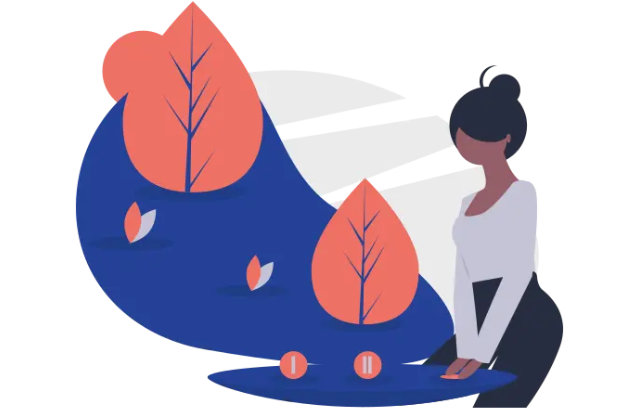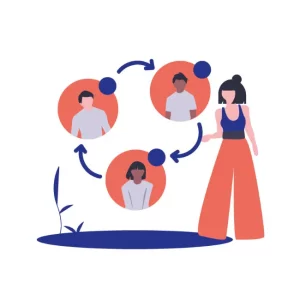Which companies have switched to a circular economy?
Understand the circular economy
The circular economy is an economic model that is increasingly being adopted by businesses, aiming to reduce negative impacts on the environment while creating economic value. Unlike the traditional linear economy, where resources are extracted, transformed into products and then thrown away after use, the circular economy is based on the principle of a virtuous loop where waste becomes resources for new production.
This economic model is increasingly encouraged by governments and international organisations, as it helps to meet current environmental challenges such as reducing greenhouse gas emissions, preserving natural resources and tackling pollution. In this article, we will explore some concrete examples of companies that have integrated the circular economy into their strategy and succeeded in reaping the benefits.

Circular Economy training at Interface
Interface, a company specialised in the manufacture of floor coverings, is an inspiring example of the use of the circular economy. In 1994, the company's founder, Ray Anderson, became aware of the impact of his business on the environment and decided to implement a sustainable development strategy. To this end, he created a team dedicated to the circular economy and launched a training programme to raise awareness of this economic model among his employees.
Cette formation a permis à l'ensemble des employés de comprendre les enjeux environnementaux et les avantages de l'économie circulaire pour l'entreprise. Ainsi, chaque employé est devenu un acteur clé dans la mise en place de pratiques responsables et a contribué à l'amélioration continue de la stratégie de développement durable d'Interface.
Circular Economy innovation at Levi's
The famous clothing brand Levi's has decided to make a commitment to the circular economy by launching a programme to collect and recycle its end-of-life products. Used jeans are collected and transformed into textile fibres for the manufacture of new products. This initiative enables the company to reduce its environmental footprint and create a new source of revenue by offering recycled products.
At the same time, Levi's has also developed an innovative technology called 'Water<30', which reduces water consumption in the production of its jeans by more than 96%. Not only does this innovation have a positive impact on the environment, it has also enabled the company to make significant savings.
Sustainable design at the core of Patagonia's business model
Patagonia, a sports and outdoor clothing company, has had a responsible and resilient strategy in place since it was founded in 1973. The brand has chosen to focus on the quality and durability of its products rather than quantity, notably by offering lifetime warranties for its clothing. Patagonia also encourages its customers to repair their clothes rather than throw them away, and offers free repair services in its shops.

The Circulab, a tool for designing a circular business model
The Circular Canvas is a tool developed by the Circulab consultancy agency to help companies create a circular business model. This canvas, inspired by the Business Model Canvas, proposes a methodology for analysing and rethinking the various components of a company's business model by integrating the principles of the circular economy.
The Circulab enables companies to think about innovative solutions to reduce their environmental impact while creating economic value. Many companies have already used this tool to rethink their business model and have succeeded in developing new circular products and services.
The circular economy is an economic model of the future that offers many opportunities for businesses to combine economic performance with environmental responsibility. The examples cited in this article show that the circular economy can be implemented in different sectors of activity and that it can bring real benefits to businesses. By following these inspiring examples, businesses can embark on a transition towards a more responsible and sustainable economic model for a better future.
Explore our Circular Economy courses
Whether on your own, in a group, inter-company or in-house, our courses can be tailored to your needs and objectives.
